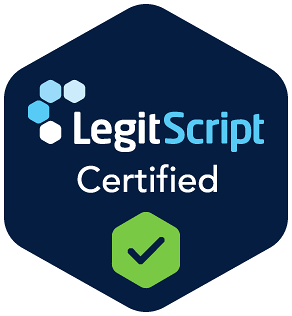.jpeg)
Addressing the Stigma of Addiction: How to Advocate for Yourself and Others
Addiction is a complex medical condition, not a moral failing, yet stigma continues to surround it. This stigma creates barriers to treatment, isolates those struggling, and discourages open conversations about recovery. At Spark Wellness in Bucks County and Elkins Park, PA, we believe that overcoming addiction stigma is essential for healing. Learning to advocate for yourself and others can help shift societal perceptions and create a more supportive environment for recovery.
Understanding the Impact of Stigma
Stigma around addiction often comes from misconceptions and a lack of education. Many still view addiction as a choice rather than a disease, leading to judgment and discrimination. This stigma can have significant consequences, including:
- Delays in Seeking Treatment – Fear of being judged can prevent individuals from getting the help they need.
- Social Isolation – Stigma may cause people in recovery to feel ashamed, leading to withdrawal from family and friends.
- Employment and Legal Barriers – Those with a history of substance use disorder (SUD) may face difficulty finding jobs or securing stable housing.
- Mental Health Challenges – Internalized shame can lead to anxiety, depression, and relapse.
By understanding these effects, we can begin working toward solutions that encourage compassion and support rather than judgment.
How to Advocate for Yourself in Recovery
Advocating for yourself means standing up against stigma and ensuring you receive the care and respect you deserve. This can be challenging, but there are steps you can take to empower yourself in recovery.
- Educate Yourself and Others – Learning about addiction as a medical condition can help you confidently address misinformation. Share facts with those who may not fully understand substance use disorders.
- Use Supportive Language – The words we use matter. Instead of saying “addict” or “alcoholic,” use person-first language such as “a person in recovery” or “someone with a substance use disorder.” This reduces labels and reinforces dignity.
- Set Boundaries – Not everyone will be supportive, and that’s okay. Prioritize your well-being by setting clear boundaries with individuals who are unsupportive or judgmental.
- Seek a Strong Support System – Surround yourself with people who uplift and encourage your recovery journey, whether that’s friends, family, a therapist, or a recovery group.
How to Advocate for Others Facing Addiction
Advocacy extends beyond personal recovery—it involves standing up for others who may not have a voice. Here’s how you can help reduce stigma in your community.
- Challenge Misinformation – When you hear someone making negative or inaccurate statements about addiction, politely correct them with facts.
- Support Recovery-Friendly Policies – Advocate for policies that improve access to treatment, such as expanding mental health and addiction services.
- Share Your Story – If you’re comfortable, sharing your journey can inspire others and break down stigma by showing that recovery is possible.
- Encourage Compassion – Remind others that addiction is a health issue, not a moral failing. Encouraging empathy over judgment can make a meaningful difference.
Creating a Stigma-Free Future
At Spark Wellness in Bucks County and Elkins Park, PA, we are committed to fostering an environment where those struggling with addiction feel supported, not shamed. By advocating for yourself and others, you can help dismantle stigma and create a culture that prioritizes recovery, healing, and hope. If you or a loved one needs support, know that help is available, and recovery is always within reach.
Recovery articles for you
.jpg)
Understanding the Connection Between Trauma and Substance Use
.jpg)
The Intersection of Technology and Mental Health: Navigating Digital Well-being
.jpg)



